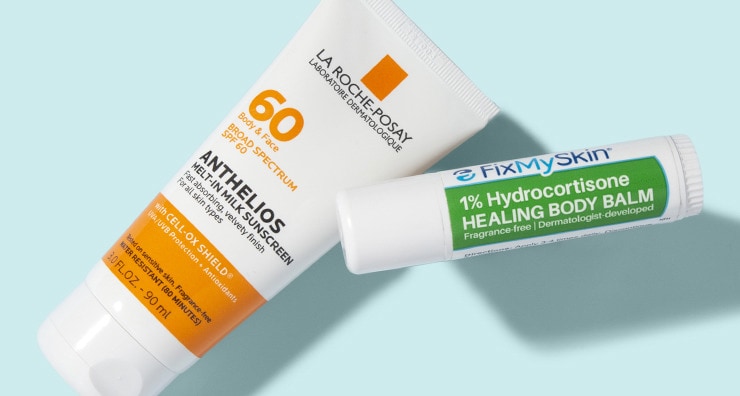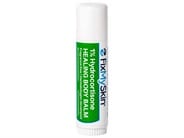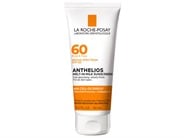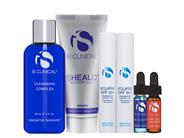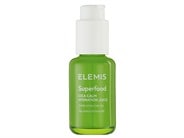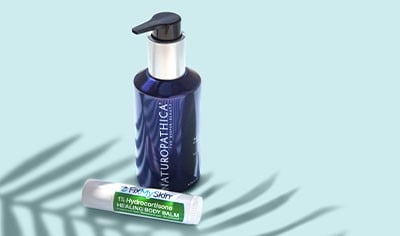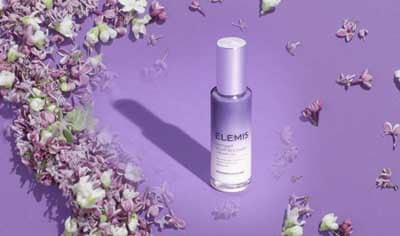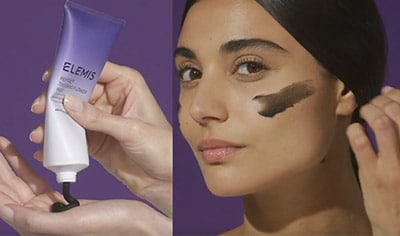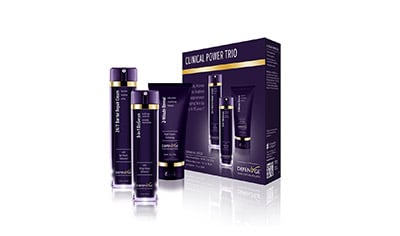Skin pain, tender skin or skin that hurts to touch or rub can be a tricky condition to diagnose, especially if there is no visible rash or injury to the skin. While there can be a multitude of skin pain culprits, if your skin hurts and you’re not sure why, it’s always a good idea to schedule an appointment with a board-certified dermatologist or your primary care physician to get some answers. “Tender skin can be a challenging problem, but there are some remedies that are simple and straightforward that can help skin that is sensitive to touch," says board-certified dermatologist and LovelySkin CEO Dr. Joel Schlessinger. We’re breaking down a few reasons why your skin hurts to touch or rub and what you can do to ease tender skin and skin pain, including:
If your skin hurts to touch but no rash is visible, it could be an underlying health problem.
If you find that gently brushing your hair or if something softly touches your skin and causes skin pain, you could be experiencing allodynia. Allodynia is described as skin that hurts to touch or rub or unusually tender skin, caused from things that wouldn’t normally cause any skin pain or discomfort. It can be caused by underlying conditions like migraines, fibromyalgia, diabetes, nerve conditions, past trauma to the skin or can simply occur on its own. Symptoms can range from mild to severe; with some experiencing a burning sensation in the skin and others a feeling of squeezing or tightening. If your skin hurts to touch but no rash is detectable, schedule an appointment with your primary care physician.
If your skin is sensitive to touch, you could have an allergic reaction.
Allergic reactions on the skin often present themselves in the form of an itchy, red rash, also known as hives. Allergic reactions range in severity with some resulting in anaphylactic shock and others presenting with mild discomfort, itching or skin that hurts to touch or rub. They can happen from contact to known allergens like certain types of food, plants or insect bites. “Allergic reactions that make your skin sensitive to touch can be treated immediately with a medicated healing treatment with hydrocortisone. If you are experiencing trouble breathing after an allergic reaction, call 911,” Dr. Schlessinger says.
Treat mild discomfort from irritations to the skin with this 1% hydrocortisone healing balm, developed by Dr. Schlessinger and his son Daniel. Apply the melt-free balm to the area of irritation up to four times daily for skin pain treatment. It immediately calms redness and itchiness while keeping tender skin that is sensitive to touch comfortable with shea and cocoa butters.
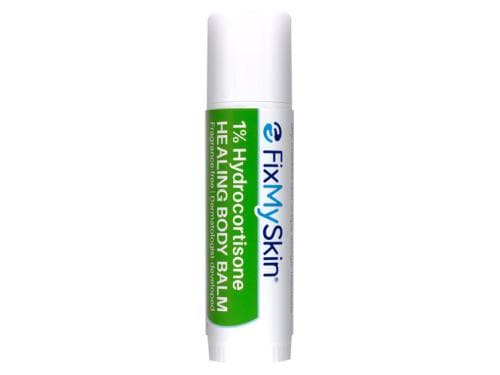
Sunburns happen much quicker than you think, with redness and pain in the skin occurring two to six hours after exposure. A severe enough sunburn can actually make your body ache and can mimic flu symptoms, including fever, chills and headache. That’s why it’s imperative to have wear a sunscreen like La Roche Posay Anthelios 60 Melt-In Sunscreen Milk, every day of the year to prevent skin pain and any other damage sunburn causes. “In terms of sunburn remedies, if you have a sunburn that is brewing or that is inevitable, consider popping an aspirin or Advil as soon as possible," Dr. Schlessinger says. "It could make the difference between a little burn and a miserable experience!”
If you are experiencing a mild burn, you can take away the “sting” in tender skin by applying a cold compress or soaking in a lukewarm bath. Apply an aloe vera treatment gel to cool and soothe any redness or skin pain.
This advanced aloe vera gel is a must-have in your arsenal for treating overexposed skin that is sensitive to touch. It has aloe vera, cucumber extract and CICA, an anti-inflammatory herb, to help calm red, inflamed skin and replenish lost moisture that your skin needs to recover from a sunburn.
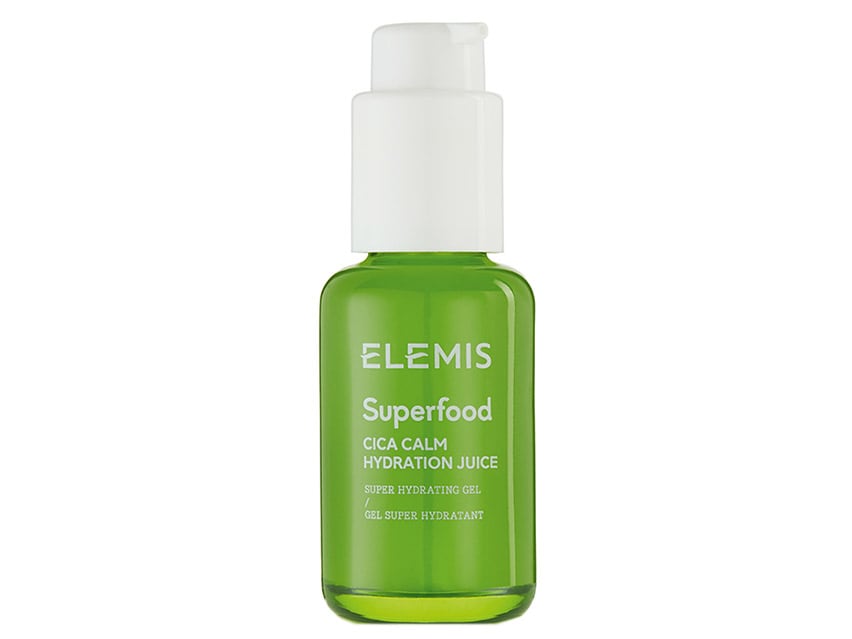
If your skin hurts to touch or rub after ablative procedures,
In-office resurfacing treatments like microdermabrasion, ablative laser treatments or chemical peels can all be extremely beneficial in addressing unwanted pigmentation, dark spots or uneven texture. But, they often come with some unwanted side effects like redness, sensitivity, or skin pain. While tender skin is totally normal and actually crucial to achieving the benefits chemical peels provide, it can be difficult to deal with. After these procedures, take extra care of skin that hurts to touch or rub by staying out of the sun and swapping out your normal skin care routine with a more nourishing, protective regimen. It’s also beneficial to use an occlusive moisturizer or petrolatum to seal in the necessary moisture that helps heal tender skin that is sensitive to touch.
This advanced five piece skin recovery set includes everything you need to ease the pain and sensitivity in resurfaced, tender skin. It contains a cleanser, healing serum, cooling serum, two sunscreens and a healing balm to provide compromised skin sensitive to touch with antimicrobial protection for faster healing. This set immerses skin in deep hydration, aiding skin’s healing process while minimizing pain and discomfort.
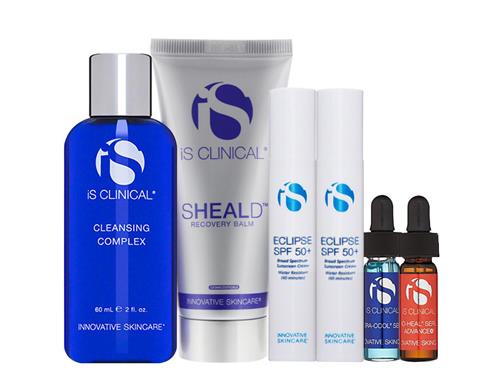
Have a question about skin that hurts to touch or rub for our resident expert Dr. Joel Schlessinger? Leave it in a comment below.


